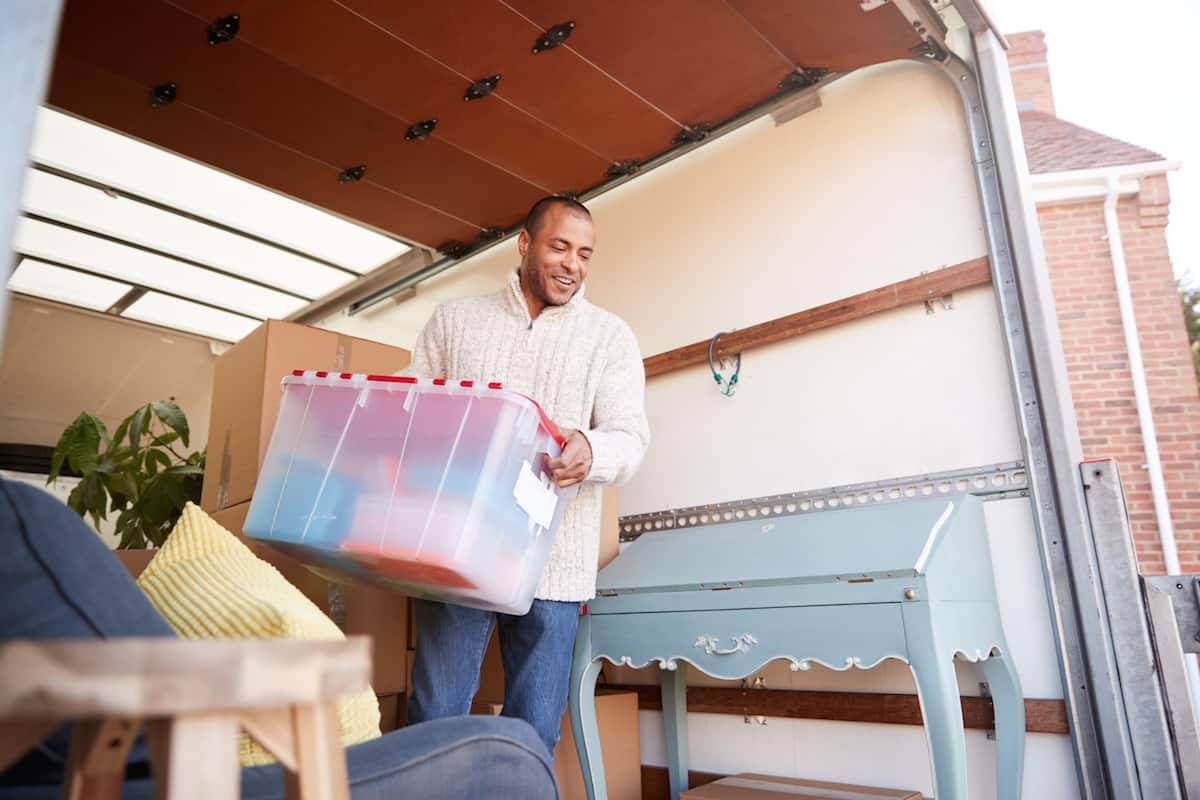Each year nearly 36 million people are moving into a new home. The most common reasons for moving include finding a better place to live and taking a new job. In our current times, moving into a new home could be because you no longer need to live in Place A because your job is letting your telecommute or you just want a bigger space.
If you’ll be moving into a new home, house or apartment in the near future, then you’re probably looking to get that move organized. And, if you don’t have an employer’s relocation package picking up the tab, then you’re probably looking for ways to save money on that move.
Money saving tips for moving into a new home
That’s why I’ve put together these tips from experts on how to save money when moving to a new home. Some of these tips may seem obvious, but they’re worth repeating. Others may be new to you and could help you keep your move on budget. Overall, they should be helpful in how you approach finding a mover and paying for that move into a new home, including calculating moving costs.
Get more than one quote when moving to a new home
Getting more than one quote is good advice outside of moving into a new home. Think of it like any professional you may hire to work around your house. You always want to get at least two, possibly three quotes, for any service you’ll be paying for. I believe that being able to compare services offered and dollars charged for moving services makes me a sophisticated consumer. I want you to make smart consumer decisions, too.
FYI, whenever we need to hire professionals for home-related services, we always start our search at Home Advisor. Believe it or not, Home Advisor can also refer you to movers that can help you get moved to your new home.
Declutter before packing to move to a new home
Why would you pay to move something that you don’t need, never really liked, or aren’t interested in using in your new home. Instead, sell on Facebook Marketplace. If it’s safe, arrange to have a yard, driveway or tag sale. Donate your stuff to Goodwill.
As one real estate professional I interviewed suggested, you can give clothes, furniture, and other items to various charities that happily receive them and distribute them to those in need. Some of these charities will even come to your home before you move.
For example, when we were selling home number two in Pennsylvania, we were able to get a resale thrift store to bring its truck to our four-bedroom home, and take our unwanted furniture. Then, they turned around, and sold them in their thrift store to help support their cause.
If you do end up making donations before moving to your new home, don’t forget to ask for a receipt. It’s possible that your accountant may be able to apply this as a tax deduction on your tax return.
You may need to hire a junk removal service
Sometimes you have more stuff than you can move or donate to a good cause. This is when a junk hauler makes sense. We’ve had a good experience using 1-800-GOT-JUNK.
Most recently we hired the company after a relative died. While we were able to sell many of her antiques at auction and donate other furniture, we were left with too much to haul to the dump ourselves. Or, put out by the curb. So we called 1-800-GOT-JUNK, and for an affordable price, they hauled everything else away.
Save money on packing materials
If you’re hiring a mover to move you to your new home, then part of their contract will be bringing packing materials. But, if you’re moving yourself, then you’ll need to make sure that you wrap delicate items so they don’t break in the move. Sure, you can go to Staples or Target to buy rolls of bubble wrap. Or, you can use what you own as your packing materials. Some suggestions for wrapping delicate items include:
- clothing
- towels
- rags
- throw rugs
- blankets
Another idea: Use garbage bags for clothing versus boxes. That is, keep everything already on hangers, and use garbage bags as garment bags when packing up. This was how we moved each of our daughters to/from their college dorms, and it would work great for moving you to from a new home, too.
If you want to protect your mattresses during the move to a new store, ask a local mattress store if they have extra plastic covers that you can take off their hands for free.
Be creative with how you get boxes for your move to a new home
Ask your local supermarket or liquor store if they have any boxes you can take for free. Find out if friends, colleagues or relatives have moved recently and might still have some moving boxes in their garage that you could take off their hands.
Live in an apartment building or condo complex? Chances are your neighbors have been getting lots of deliveries from Amazon, Walmart, Target and the like. So, keep an eye out for free boxes.
Also, if you’re on the Next Door, the neighborhood app, you could put out a call for moving boxes. Same with any local Facebook groups.
Consider using reusable containers for your move
If you already have items stored in reusable containers, keep them that way. Just run a few rounds of packing tape around the container to ensure it doesn’t open with the move.
Have everything packed when the movers get there or if you’re moving yourself. The last thing you need is to have those tops pop off on the way to your new home.
My husband and I recently had to move his mother to an assisted living facility. My mother in law was moving from a two-bedroom home into a studio apartment, and she had limited funds to pay for a mover. Since movers charge by the hour or by the estimated weight or your move, the more you can have done ahead of time, the more money you will save. This was true with my mother in law’s move, which ended up costing in the hundreds rather than the thousands.
Be flexible the day you will be moving to your new home
Not surprisingly, most people want to move on a weekend so they don’t have to take off time from work. That means that renting a moving truck or hiring movers for a weekday move can save you right off the bat.
Also, if you can hitch a ride on someone else’s move, you can save as well. Ask a moving company if they have any trucks going to your location, and find out how much extra it would cost to make a stop to drop off your belongings. Oftentimes it can be cheaper than booking your own move.
Consider an alternate moving service
When it comes to a DIY move or alternate moving service, there are two ways you can approach this. First, you can see if a moving pod is cheaper than a moving truck.
In moving from Pennsylvania house number one to two, and then New Jersey house to third Pennsylvania house, we decided to do part of the move ourselves. To accomplish this we used the PODS service.
Second, you can try a service where you pack up your belongings but someone else comes to get them and drive them to your new home. One such service that does this for moving to a new home is U-Pack.
U-Pack specializes in long distance moving services with coverage across the United States, Canada and Puerto Rico. A “you pack, we drive” moving solution, U-Pack customers enjoy the cost savings of packing and loading themselves, without having to drive.
Pack an essentials bag for the day you arrive at your new home
Once you arrive in your new home, the likelihood that you’ll unpack all your boxes right away is pretty low. To avoid running to the local grocery store at midnight to find a toothbrush, pack an essentials bag that you keep with you during the move. Include a change of clean clothes, toiletries and a towel (you’ll probably want to rinse off) so you can start out on the right foot. A set of sheets and blankets for each person’s bed probably is a good idea as well.
Start purging perishables before moving day
About three to four weeks before your move, stop purchasing perishable foods and start cooking what you have on hand. A slow cooker is a great way to cook up that frozen pot roast that’s been sitting in the freezer or vegetables that you have in the crisper.
Remember to shut off and turn on utility services when moving to a new home
When I say utilities, I don’t mean a utility belt–though a toolbox to help with the move (disassembling items and then putting them back together on the other end) isn’t a bad idea. You need to notify the utility companies in your old place that you’re leaving, and you need to get them turned on in the new place. Making a list of utility companies for your home’s new owners would be good karma, too.

